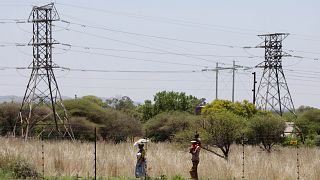South Africa
A tiny beach restaurant in South Africa shot to fame last year when it was voted the world’s best eating house for unique dishes.
But the limelight faded after the coronavirus pandemic arrived — and today, the much-acclaimed Wolfgat is counting its losses. Eateries across the country have been shut to diners since March 27 when a nationwide lockdown was imposed to curb the spread of coronavirus.
Kobus Van Der Merwe, owner and chef at Wolfgat says they are warming up to the reality of the new normal: “We need to rethink the way the service takes place, how the cutlery is handled and the dishes
“… how to make sure that we and our guests feel safe and relaxed, to live a new Wolfgat experience. But we’re ready, we’re ready for the challenge.”
Starting last month, blanket restrictions were eased slightly, enabling restaurants to cook but just for takeaways. Under normal circumstances, Wolfgat can serve a maximum of 20 sitting guests, but the pressure of the lockdown has weighed heavily on the restaurant.
Emily Williams, a staff speaks on the new rules: “Because of the virus, the restaurant won’t be as crowded as it used to be… but I’m excited for the people coming back. Because I miss talking to people, explaining our food at the table and everything.”
South african President President Cyril Ramaphosa this week announced that restaurants will soon be able to have sit-down customers, albeit with physical distance restrictions. The country is Africa’s most impact with over 87,000 cases as of June 20.
- Confirmed cases = 87,715
- Active cases = 38,059
- Recoveries = 47,825
- Number of deaths =1,831
John Hopkins Uni stats valid as of June 19, 2020 .embed-container { position: relative; padding-bottom: 56.25%; height: 0; overflow: hidden; max-width: 100%; } .embed-container iframe, .embed-container object, .embed-container embed { position: absolute; top: 0; left: 0; width: 100%; height: 100%; }













Go to video
Semenya ruling shakes foundations of gender rules in sport
01:53
SMES under pressure as business confidence hits four-year low in South Africa
Go to video
Former South African deputy president David Mabuza dies at 64
01:05
South Africa: year of power marred by new scandal in coalition government